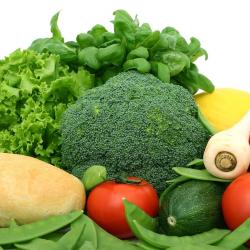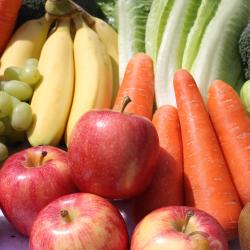The Benefits of Eating Seasonal Foods and How to Incorporate Them
The convenience of accessing any food item at any time of the year can tempt us to overlook the significance of eating seasonally. However, making a conscious effort to consume seasonal foods can bring myriad health benefits, support local economies, and contribute to environmental sustainability. Let's delve into the advantages of eating seasonal produce and explore practical ways to incorporate them into your daily meals.
The Benefits of Eating Seasonal Foods
1. Nutritional Superiority
Seasonal foods are harvested at their peak ripeness, meaning they are nutritionally dense. As these foods reach their full growth potential, they retain more vitamins, minerals, and antioxidants. For example, tomatoes grown in the warm months often contain more lycopene, a powerful antioxidant, compared to those grown out of season. Eating seasonal means consuming produce with the highest nutrient content, contributing positively to your overall health.
2. Better Taste and Quality
Have you ever bitten into a juicy, sweet strawberry in June only to have a completely different experience come December? Seasonal produce tends to taste better because it is fresh and harvested at its prime. Out-of-season fruits and vegetables are often transported long distances and require artificial ripening, which can diminish flavor and texture. Enjoying foods at their seasonal best ensures you are getting the fullest taste experience possible.
3. Cost-Effectiveness
Buying fruits and vegetables in season can also be more economical. When foods are in abundance, prices typically drop. By purchasing what local farmers are producing at any given time, you can take advantage of lower prices and reduce your grocery bill.
4. Environmental Sustainability
Transporting out-of-season produce requires significant energy and contributes to the carbon footprint. By choosing seasonal and local options, you support sustainable farming practices, reduce food miles, and minimize environmental impact. Seasonal eating encourages a shift towards a more eco-friendly food consumption pattern.
5. Supports Local Farmers and Communities
Embracing seasonal eating bolsters local economies. Purchasing directly from farmers’ markets or joining a Community Supported Agriculture (CSA) program helps support local farmers, preserving local farmland and fostering stronger community connections.
How to Incorporate Seasonal Foods into Your Diet
1. Research What’s in Season
Understanding what fruits, vegetables, and other produce items are in season at any given time is the first step. Regional differences mean that seasonality can vary, so use resources like local agriculture extensions or online guides to identify seasonal foods in your area.
2. Visit Local Markets
Farmers’ markets are treasure troves of fresh, seasonal produce. Regular visits not only provide access to quality ingredients but are also a great way to engage with your community. Talk to the vendors, learn about their produce, and discover cooking tips or recipes.
3. Plan Your Meals Around Seasonal Produce
When designing your meal plan, start with what’s in season. This strategy not only ensures diet variety but also inspires creativity in the kitchen. Roasted root vegetables in the winter or fresh salads in the summer can become staples in your meal rotation.
4. Preserve Seasonal Flavors
Freezing, canning, and fermenting are excellent ways to capture the taste and nutrition of in-season foods for later consumption. With a little effort upfront, you can enjoy the benefits of seasonal produce even when they are no longer available in stores.
5. Experiment with New Recipes
Trying new recipes can make seasonal eating exciting. Search for seasonal cookbooks or online blogs that focus on meals using in-season ingredients. By experimenting with flavors and cooking methods, you may discover new favorites that enrich your dietary repertoire.
Embracing the seasonal food mindset not only enhances your nutritional profile and taste experience but also aligns with sustainable living. By making small changes to incorporate seasonal ingredients, you contribute to a healthier lifestyle and a greener planet. So, next time you set out to plan a meal or shop for groceries, ask yourself: what's in season? The answer might lead you to fresher, tastier, and more enriching culinary adventures.






















